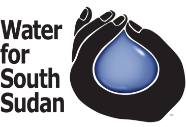Women’s Empowerment Project Update #4
Project Overview
The Women’s Empowerment Project, funded by an anonymous foundation and implemented by the Water for South Sudan Foundation in March, marks a significant milestone in addressing women’s needs in the Udhum, Aweil West County community.
Furthermore, this project aims to enhance the socio-economic status of women in Udhum through various interventions, including Village Savings and Loans Associations (VSLAs), vegetable production, and hygiene promotion.
Our Latest Accomplishments
Village Savings and Loans Associations (VSLAs)
Weekly VSLA meetings were conducted as planned.
Total savings for September: 166,000 South Sudanese Pounds (SSP) (equivalent to $1,274 USD).
Total cumulative savings: 314,000 South Sudanese Pounds (SSP) (equivalent to $2,410 USD).
Vegetable Production
Vegetable Gardening
Harvesting of okra started on September 2.
Sukuma (collard greens) harvesting was done on September 20.
Harvesting is done weekly for both sukuma and okra.
Application of the best agricultural practices in the participants' houses
Natural pest control training was done on September 16.
The training taught participants how to create their own pest control by mixing powdered soap, chili, and leem leaf, burning the mixture, and then leaving it to cool. The cooled mixture is then sprayed on vegetable leaves to prevent pests.
3. Hygiene Promotion
1,744 community members (937 women and girls, 807 men and boys) were reached with critical hygiene messages, including handwashing, food hygiene, environmental hygiene, and caregiving practices.
Hygiene promotion activities raised awareness among caregivers at nutrition sites, and will contribute to reducing the prevalence of Global Acute Malnutrition (GAM) among children.
Stay tuned and follow us on our social media platforms for more exciting updates about the Women’s Empowerment Project. Thank you for your commitment to supporting this vital work.





